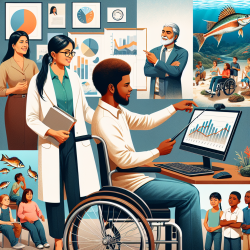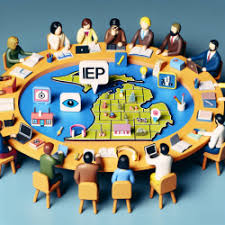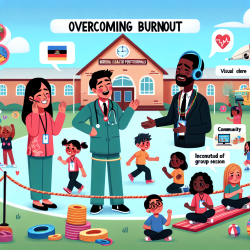Introduction
In the realm of special education, continuous improvement and adaptation are crucial. As a Special Education Director, it is essential to stay informed about the latest research and methodologies that can enhance educational practices. This blog post draws inspiration from a research study on bonefish conservation in Cuba, titled A stakeholder-engaged approach to evaluating spawning aggregation management as a strategy for conserving bonefish (Albula vulpes) in Cuba. Although the study focuses on environmental conservation, the strategies and outcomes can be adapted to improve special education practices. Let's explore how.
Engaging Stakeholders for Effective Management
The research emphasizes the importance of engaging stakeholders, such as local fishing guides and fisheries professionals, in the management of bonefish spawning sites. Similarly, in special education, involving key stakeholders—parents, teachers, therapists, and students—is vital for creating effective educational plans. By fostering collaboration and communication among stakeholders, we can ensure that each student's unique needs are met.
Utilizing Local Knowledge and Expertise
In the study, local ecological knowledge (LEK) played a significant role in identifying bonefish spawning sites. This approach can be mirrored in special education by valuing the insights and expertise of teachers and therapists who work closely with students. Encouraging them to share their observations and experiences can lead to more personalized and effective educational strategies.
Implementing Adaptive Management Strategies
The research highlights the need for adaptive management strategies to address data limitations and changing environmental conditions. In special education, flexibility and adaptability are equally important. By regularly reviewing and adjusting Individualized Education Plans (IEPs) based on student progress and feedback, we can ensure that educational goals remain relevant and achievable.
Collaboration with External Partners
The study recommends collaboration with third-party institutions to enhance bonefish management. Similarly, special education programs can benefit from partnerships with organizations like TinyEYE, which provides online therapy services. These collaborations can help address therapist staffing shortages and provide students with access to specialized services.
Recommendations for Special Education Practitioners
- Engage Stakeholders: Foster open communication and collaboration among parents, teachers, therapists, and students to create effective educational plans.
- Leverage Local Expertise: Encourage teachers and therapists to share their insights and experiences to develop personalized educational strategies.
- Adopt Adaptive Strategies: Regularly review and adjust IEPs based on student progress and feedback to ensure goals remain relevant.
- Collaborate with External Partners: Partner with organizations like TinyEYE to provide students with access to specialized services and address staffing shortages.
By implementing these recommendations, special education practitioners can enhance their skills and improve educational outcomes for students with special needs.
To read the original research paper, please follow this link: A stakeholder-engaged approach to evaluating spawning aggregation management as a strategy for conserving bonefish (Albula vulpes) in Cuba.










